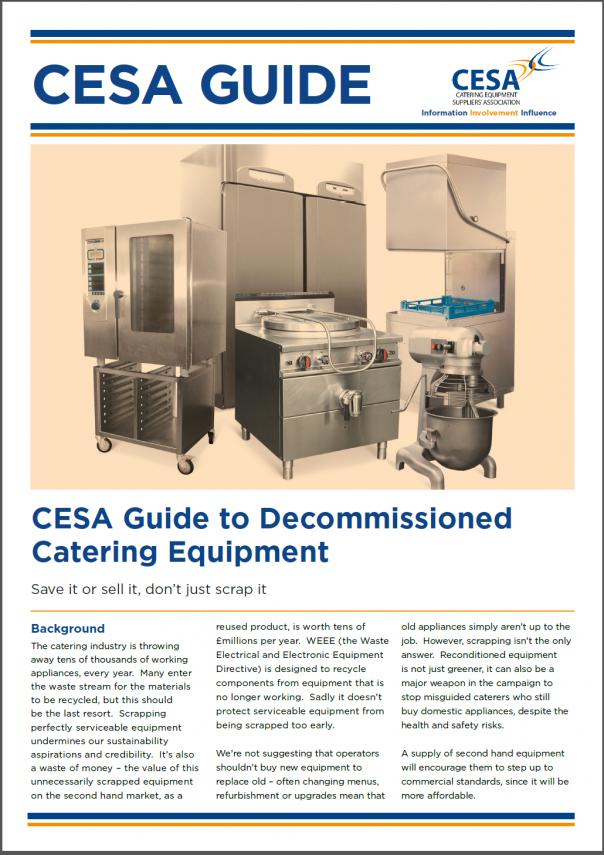
Offering insight into the issue and best practice for reusing second hand appliances, CESA said the main reason for the industry’s ‘scrap it’ mentality is lack of knowledge about other options available.
While many organisations do recycle, CESA believes this should be the ‘last resort’.
CESA chair John Whitehouse said: “Scrapping perfectly serviceable equipment undermines the foodservice industry’s sustainability aspirations and credibility.
“It’s also a waste of money – the value of this unnecessarily scrapped equipment on the second hand market is tens of millions per year.
“The Waste Electrical and Electronic Equipment Directive (WEEE) is designed to recycle components from equipment that is no longer working. Sadly it doesn’t protect serviceable equipment from being scrapped too early.
“We’re not suggesting that operators shouldn’t buy new equipment to replace old – often changing menus, refurbishment or upgrades mean that old appliances simply aren’t up to the job.
“However, scrapping isn’t the only answer. Reconditioning equipment is not just greener, it can also be a major weapon in the campaign to stop misguided caterers who still buy domestic appliances because they are cheaper, despite the health and safety risks.
“A supply of second hand equipment will encourage them to step up to commercial standards, since it will be more affordable.
“Obviously it will help with any company’s sustainability targets. However, there’s also the option of using the income or the equipment itself to help low budget organisations – such as charities, social enterprises, new business start-ups or projects in third world countries.
“In terms of sustainability, the refurbishment of second hand equipment makes a real contribution to the circular economy.”
The free guide is available to download now via the CESA website.